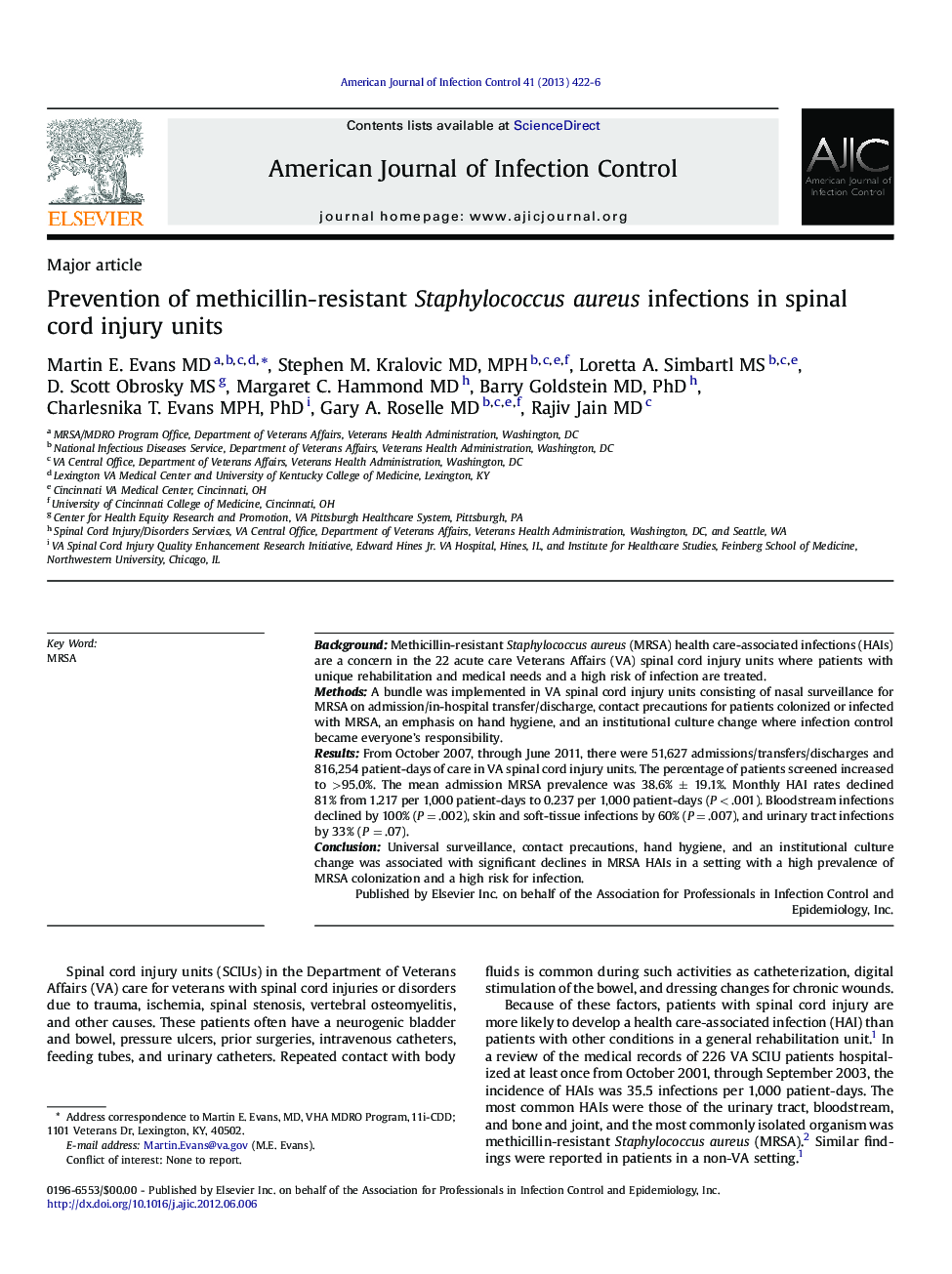| Article ID | Journal | Published Year | Pages | File Type |
|---|---|---|---|---|
| 2637323 | American Journal of Infection Control | 2013 | 5 Pages |
BackgroundMethicillin-resistant Staphylococcus aureus (MRSA) health care-associated infections (HAIs) are a concern in the 22 acute care Veterans Affairs (VA) spinal cord injury units where patients with unique rehabilitation and medical needs and a high risk of infection are treated.MethodsA bundle was implemented in VA spinal cord injury units consisting of nasal surveillance for MRSA on admission/in-hospital transfer/discharge, contact precautions for patients colonized or infected with MRSA, an emphasis on hand hygiene, and an institutional culture change where infection control became everyone’s responsibility.ResultsFrom October 2007, through June 2011, there were 51,627 admissions/transfers/discharges and 816,254 patient-days of care in VA spinal cord injury units. The percentage of patients screened increased to >95.0%. The mean admission MRSA prevalence was 38.6% ± 19.1%. Monthly HAI rates declined 81% from 1.217 per 1,000 patient-days to 0.237 per 1,000 patient-days (P < .001). Bloodstream infections declined by 100% (P = .002), skin and soft-tissue infections by 60% (P = .007), and urinary tract infections by 33% (P = .07).ConclusionUniversal surveillance, contact precautions, hand hygiene, and an institutional culture change was associated with significant declines in MRSA HAIs in a setting with a high prevalence of MRSA colonization and a high risk for infection.
